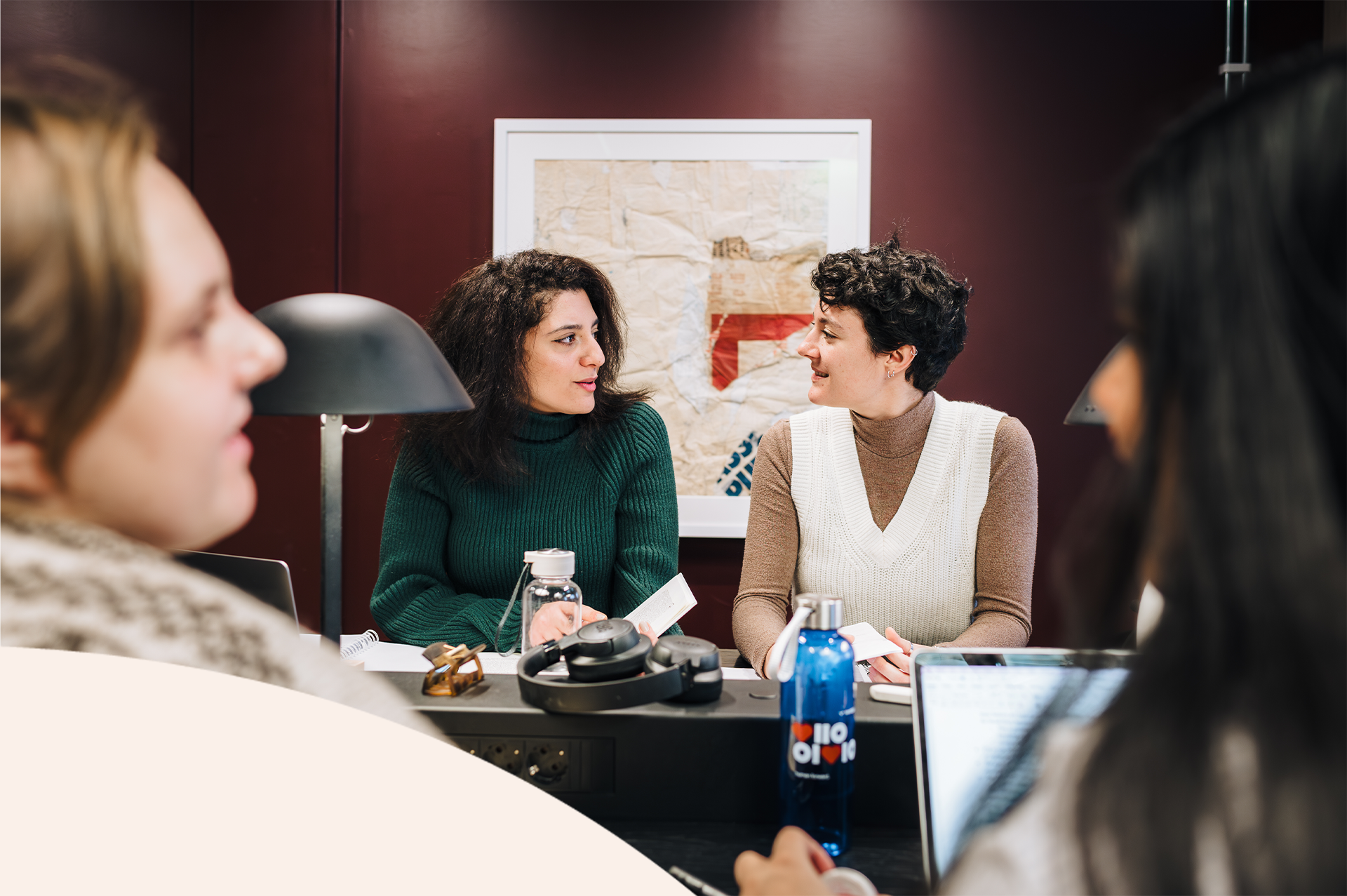The art of group work
The ability to collaborate is at the forefront of the study situation during group work, when we work together with others to achieve a common goal, for example in a project or in a tutorial group. Different ideas about the planning, structure and content of the work, and different levels of ambition within the group, can make collaboration complicated and contentious.

When working with people from cultures other than your own, clear communication and openness can be important. In Sweden, it’s generally considered okay to ask questions when you don’t understand what someone means or if something is unclear.
Group work is facilitated by frameworks and planning
One way to prevent problems in group work is to begin by formulating “rules” for the group’s work. A good start can be to structure the work process together. This means agreeing on the steps to be taken to carry out the task. For example, this can be done in a process where everyone can describe how they perceive the task, come up with ideas about what needs to be done and express their opinion about what the other members of the group have to say.
Once the work tasks have been described, they can be distributed among the members of the group. It’s also good to plan how the writing process will be carried out. Will each member of the group take responsibility only for their own text or will you all read, edit and make suggestions for changes to each other’s texts? A timetable needs to be set and dates specified for when you will meet or if you will follow up the work in another way. It’s also good to continuously evaluate your work.
Tips to succeed in your collaboration
- Decide at the beginning of your group work what is to apply regarding times, attendance and preparation.
- Decide how the tasks are to be distributed. You may want to write it down so you can go back and look at it in the event of any confusion. Think about whether you need to appoint someone to coordinate the work of the group and keep track of the decisions you have made.
- Think about how the group can talk about the collaboration when the need arises. Maybe you can end or start each meeting with a short evaluation of how things are progressing?
- Be sure to listen to and respect each other and accept that you don’t always think alike.
- Take stock the group’s competencies. Let everyone in the group say if there is something they like to do/are good at and what they are less good at.
- How will the group make decisions if there are different views? Will majority rule apply?
Seek help if you get stuck
If work isn’t progressing and the collaboration is affecting your well-being and/or your own studies - get help from a teacher, course coordinator or supervisor.